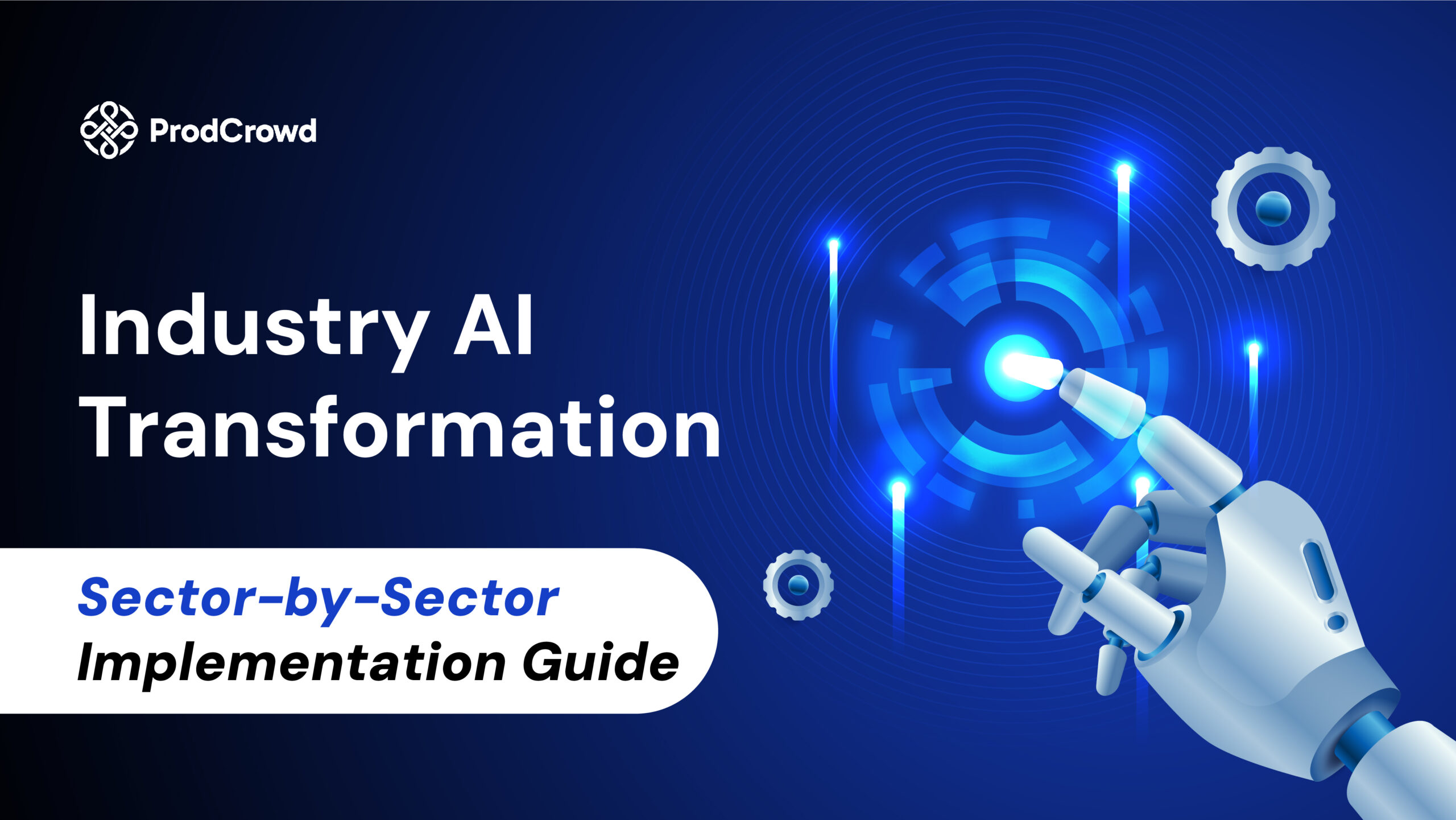Artificial Intelligence (AI) is no longer confined to research labs or tech startups. Today, it is embedded across industries, driving innovation and efficiency at scale. From AI technologies that power healthcare diagnostics to predictive systems in finance, the question is no longer whether AI will impact industries—it’s how deeply.
In this guide, we’ll explore how AI is transforming major industries, highlight specific use cases in different sectors, and share practical insights into adoption. Whether you’re in healthcare, finance, retail, or logistics, you’ll see how AI for industry is creating opportunities for smarter decision-making, cost savings, and customer-focused growth.
1. How AI Is Transforming Major Industries
AI has become a game-changer for multiple sectors by enabling data-driven decisions, automating manual processes, and uncovering new revenue streams. According to PwC, AI could contribute up to $15.7 trillion to the global economy by 2030. This immense potential is why more businesses are exploring sector-specific AI strategies.
2. AI in Healthcare: Enhancing Patient Care
2.1 Diagnostics and Predictive Analytics
AI systems can analyze vast datasets like patient records, medical scans, and genetic data to improve diagnostic accuracy. For example, AI algorithms have achieved near-human accuracy in detecting cancers on radiology scans.
2.2 Drug Discovery and Research
Developing new drugs is time-consuming and expensive. AI accelerates this process by predicting molecular interactions and identifying promising compounds faster than traditional methods.
2.3 Personalized Healthcare
AI-driven platforms customize treatment plans based on patient-specific data. This personalization improves outcomes and reduces unnecessary costs.
Key takeaway: Healthcare is one of the fastest-growing sectors using AI to deliver life-saving innovations.
3. AI in Finance: Smarter Risk and Investment Decisions
3.1 Fraud Detection and Security
Banks and financial institutions use AI technologies to monitor transactions in real-time, flagging suspicious activity. This has significantly reduced fraud losses worldwide.
3.2 Automated Trading
AI-driven algorithms predict market trends and execute trades faster than human brokers, helping investors maximize returns.
3.3 Credit Scoring and Risk Assessment
AI evaluates customer behavior and transaction histories to provide more accurate credit scores. This not only improves risk management but also increases access to financial services for underserved populations.
Key takeaway: Finance shows how AI for industry can reduce risks while improving efficiency.
4. AI in Retail: Redefining Customer Experiences
4.1 Personalized Shopping
Retailers use AI to analyze purchase history and browsing behavior, delivering tailored product recommendations that drive sales.
4.2 Inventory and Supply Chain Management
AI predicts demand patterns, ensuring that stock levels match customer needs. This reduces waste and improves efficiency.
4.3 Chatbots and Customer Support
AI-powered chatbots provide 24/7 assistance, resolving queries instantly while reducing support costs.
Key takeaway: Retail demonstrates how sectors using AI can improve both customer experience and backend efficiency.
5. AI in Manufacturing: Smarter Production Lines
5.1 Predictive Maintenance
AI technologies predict equipment failures before they happen, minimizing downtime and saving costs.
5.2 Quality Control
Computer vision systems detect product defects faster and more accurately than human inspectors.
5.3 Process Optimization
AI-driven automation enhances efficiency in assembly lines, cutting production costs while maintaining high quality.
Key takeaway: Manufacturing showcases AI’s ability to combine automation with intelligence.
6. AI in Transportation and Logistics: Driving Efficiency
6.1 Route Optimization
AI helps logistics companies minimize fuel consumption by calculating the most efficient routes.
6.2 Autonomous Vehicles
Self-driving cars and delivery drones rely on AI technologies to navigate and make real-time decisions.
6.3 Demand Forecasting
AI predicts shipping demand, helping logistics companies allocate resources more effectively.
Key takeaway: Transportation and logistics highlight how AI reduces costs while improving reliability.
7. AI in Education: Personalized Learning
7.1 Adaptive Learning Platforms
AI adjusts lesson plans to match student performance, ensuring personalized education.
7.2 Automated Grading
AI saves teachers time by automatically grading assignments and providing real-time feedback.
7.3 Virtual Learning Assistants
AI chatbots support students by answering questions, helping them study more efficiently.
Key takeaway: Education demonstrates how AI technologies enhance both teaching and learning.
8. Getting Started with AI in Your Industry
Implementing AI requires more than technology—it requires a clear roadmap, the right talent, and expert guidance. Many organizations lack internal resources, which is why engaging with an experienced partner is essential.
If your business is ready to explore opportunities in sectors using AI, consider professional AI consulting services to design tailored strategies that align with your industry’s specific needs.
Conclusion
AI is revolutionizing industries worldwide, unlocking efficiencies, reducing costs, and opening doors to new possibilities. From patient care in healthcare to smarter trading in finance, AI demonstrates its value across sectors.
Understanding how AI is transforming major industries is the first step, but success requires more than awareness—it requires a strategy. With the right partner, businesses can adopt AI confidently, ensuring they remain competitive in an increasingly digital future.
If your organization is ready to take the next step, explore expert AI consulting services to identify sector-specific opportunities and start your AI transformation journey.
FAQs
Q1. Which industries are leading in AI adoption?
Healthcare, finance, retail, and manufacturing are among the top sectors using AI for innovation and efficiency.
Q2. What are the main benefits of AI for industry?
AI delivers automation, predictive insights, cost savings, improved customer experiences, and better decision-making.
Q3. Is AI adoption only for large companies?
No. Cloud-based AI services have made it accessible for small and mid-sized businesses too.
Q4. How fast is AI transforming industries?
AI adoption is accelerating. According to McKinsey, over 50% of businesses reported AI adoption in at least one business function in 2023.
Q5. What role does AI consulting play in adoption?
AI consulting helps organizations identify opportunities, reduce risks, and implement sector-specific AI solutions effectively.

